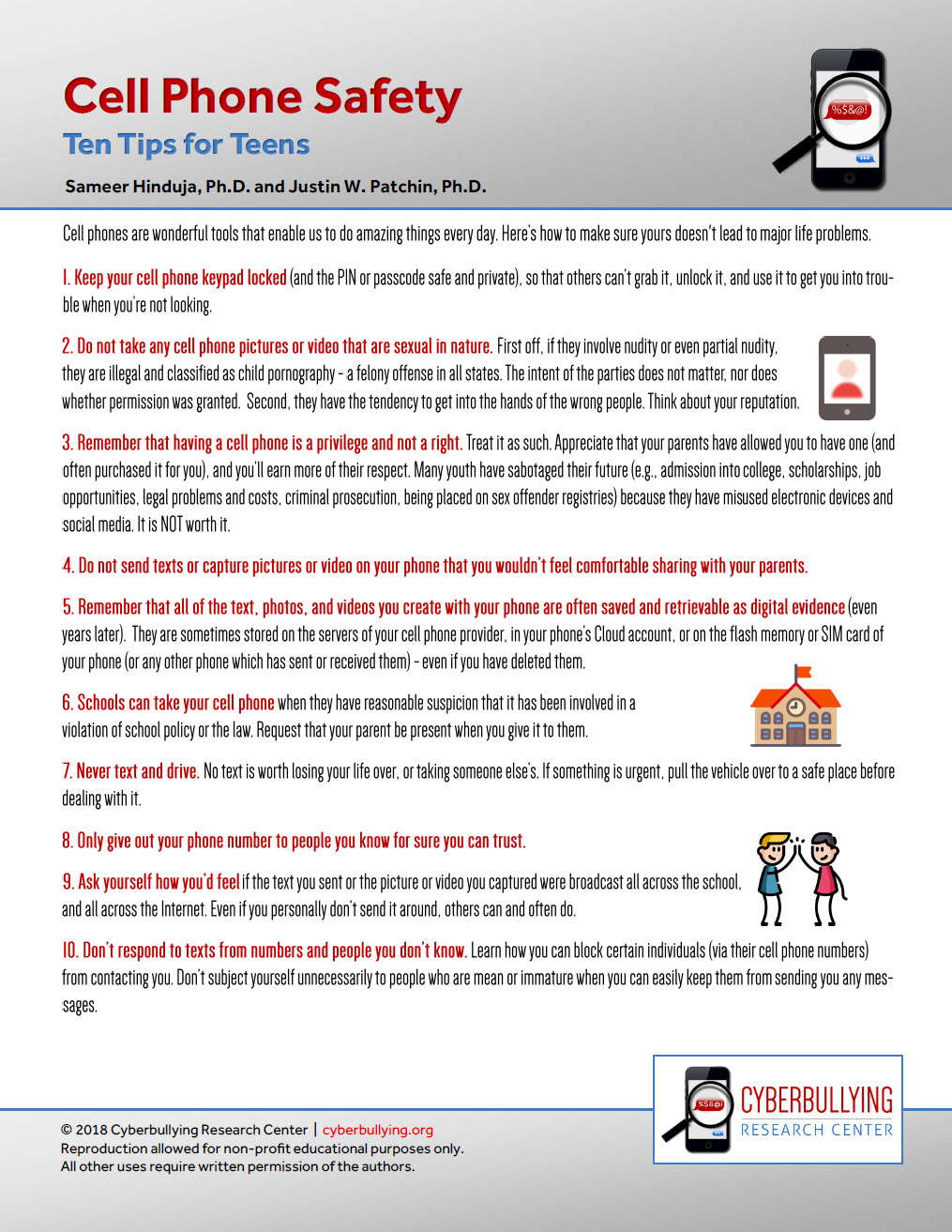
(For a formatted .pdf version of this article for distribution, click on the image above [or click here]).
Spanish Translation Available Here
Cell phones are wonderful tools that enable us to do amazing things every day. Here’s how to make sure yours doesn’t lead to major life problems.
1. Keep your cell phone keypad locked (and the PIN or passcode safe and private), so that others can’t grab it, unlock it, and use it to get you into trouble when you’re not looking.
2. Do not take any cell phone pictures or video that are sexual in nature. First off, if they involve nudity or even partial nudity, they are illegal and classified as child pornography – a felony offense in all states. The intent of the parties does not matter, nor does whether permission was granted. Second, they have the tendency to get into the hands of the wrong people. Think about your reputation.
3. Remember that having a cell phone is a privilege and not a right. Treat it as such. Appreciate that your parents have allowed you to have one (and often purchased it for you), and you’ll earn more of their respect. Many youth have sabotaged their future (e.g., admission into college, scholarships, job opportunities, legal problems and costs, criminal prosecution, being placed on sex offender registries) because they have misused electronic devices and social media. It is NOT worth it.
4. Do not send texts or capture pictures or video on your phone that you wouldn’t feel comfortable sharing with your parents.
5. Remember that all of the text, photos, and videos you create with your phone are often saved and retrievable as digital evidence (even years later). They are sometimes stored on the servers of your cell phone provider, in your phone’s Cloud account, or on the flash memory or SIM card of your phone (or any other phone which has sent or received them) – even if you have deleted them.
6. Schools can take your cell phone when they have reasonable suspicion that it has been involved in a violation of school policy or the law. Request that your parent be present when you give it to them.
7. Never text and drive. No text is worth losing your life over, or taking someone else’s. If something is urgent, pull the vehicle over to a safe place before dealing with it.
8. Only give out your phone number to people you know for sure you can trust.
9. Ask yourself how you’d feel if the text you sent or the picture or video you captured were broadcast all across the school, and all across the Internet. Even if you personally don’t send it around, others can and often do.
10. Don’t respond to texts from numbers and people you don’t know. Learn how you can block certain individuals (via their cell phone numbers) from contacting you. Don’t subject yourself unnecessarily to people who are mean or immature when you can easily keep them from sending you any messages.
Citation information: Hinduja, S. & Patchin, J.W. (2018). Cell phone safety: Top ten tips for teens. Cyberbullying Research Center. Retrieved [insert date], from https://cyberbullying.org/Top-Ten-Teen-Tips-Cell-Phones.pdf
Keywords: cell phones, students, teens, safety








Thank You.
these article really helped me out